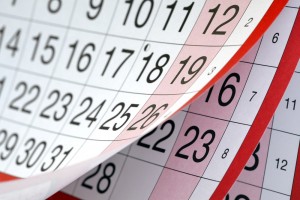The Good Heart and Lag B’omer
By Sara Esther Crispe: May 14, 2014: Category Decoding the Tradition, Inspirations
 Relationships are hard. No two ways about it. And the more intense the relationship, the more prominent it is in your life, the harder it is to maintain the peace.
Relationships are hard. No two ways about it. And the more intense the relationship, the more prominent it is in your life, the harder it is to maintain the peace.
On the Jewish calendar, it is now the time period of what is called the ‘Counting of the Omer.’ From the second day of Passover until Shavuot, there are seven weeks with a total of 49 days. Each week corresponds to a different one of the seven emotive personality traits and then each one is interincluded in the other for the totality of the days.
The most difficult part about working on ourselves is often being willing to see what we need to change in the first place. And even once we’ve figured out what to fix, actually fixing it is another challenge altogether. But counting the Omer shows us that every day we should focus on only one thing. One day at a time. We are not expected to transform overnight. But we must take a good look within and work on ourselves. This is even hinted to in one of the names related to Passover, Zman Cheiruteinu which is translated as “The Time of Our Freedom” yet a deeper way of understanding it is that time is freedom. It takes time to become free. It takes time to change our reality.
From the first day of the Omer during Passover to Lag B’omer there are 32 days. The numerical equivalent of 32 is that of lev, “heart.” During this time the focus is on one’s ability to feel, to love. Our heart must connect with others, but it also must connect within. And it must be kept in check. A healthy heart is one that is ruled by one’s head, one that is guided by the intellect.
From Lag B’omer until Shavuot another 17 days are counted. Seventeen is numerically equivalent to the word tov, “good.” When we are able to love and connect to another, we can experience true goodness.
Yet where do we get the strength for such transformative changes? Where do we get this ability to make such strides, to face our challenges and rectify aspects of our lives?
The counting of the Omer takes place over three months: we begin in Nissan, with Passover, then is Iyar with Lag B’omer, and we end in Sivan, with Shavuot. So we begin counting as we break out of our slavery, entering into freedom and we end as free people who have merited to receive the Torah. But there is a process in between. There’s a lot of preparation and work to get from Passover to Shavuot.
Iyar is the only month where for its entirety the Omer is counted. Every day there is a focus on one’s emotive strengths and weaknesses. And it is specifically during this month that Lag B’omer, the 33rd day of the Omer falls. This day also commemorates when the students of Rabbi Akiva, who had been dying by the thousands, stopped dying. Their death, it is taught, was the result of their baseless and senseless hatred for one another. Only when they learned to respect and love one another was the decree lifted.
But how can we be expected to work on ourselves and get along with others when the righteous students of Rabbi Akiva were not able to? It is easy to resign oneself that certain things are just too much for us. They are too hard and there are things beyond our control we can’t handle or change. And we may be right. But we are not alone in this process.
Iyar is an acronym for Ani Hashem rofecha, “I am G-d Your Healer.” This is our reminder that one must try his hardest, and must do everything he can. But ultimately, one’s true healing comes from the ultimate Healer who provides the strength that one may not have felt he would have had on his own.
That is the lesson of Iyar. And Lag B’omer marks the time when the level of the heart, the connection through love, has been reached and the level of goodness is therefore able to be entered. For the entire preparation counting of the 49 days is to achieve a good heart. One that loves within, and one that loves and connects to others.























;)
;)
;)
;)
;)
;)
;)
;)
;)
;)
